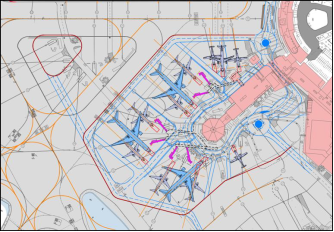As the largest airport in Ireland, Dublin’s airport charges are regulated by the Commission for Aviation Regulation (CAR). The assessment of capital investment requirements is an important input into the determination of the maximum level of airport charges that Dublin Airport is able to levy on airlines over a 5-year regulatory period.
CAR appointed Steer to devise a new capital expenditure process that would include the flexibility to adjust project allowances during a regulatory period, recognising that external factors may require a change to the project scope and costs, but also to ensure that projects remain effective and efficient.
How we helped
Steer reviewed the processes for assessing capital expenditure at other regulated airports in Europe, as well as the regulated water industry in the UK, to understand the various control mechanisms used and the different degree of flexibility available in these. Based on these results, Steer recommended a new ‘StageGate’ be used at Dublin airport, which provides a mechanism to enable allowances for capital projects to be amended in light of changes in project scope and/or market prices, subject to airline stakeholder and regulator agreement.
We recommended the independent audit of the airport’s leading capital projects, to be undertaken by an Independent Fund Surveyor (IFS).
The report detailing the analysis and conclusions was published by the Commission for Aviation Regulation on its website.
Successes and outcomes
The proposed process was approved by the airport and airline stakeholders in late 2019 and commenced early in 2020.
The new StageGate process has supported an increased level of openness and greater engagement between all parties with regards to capital projects.


